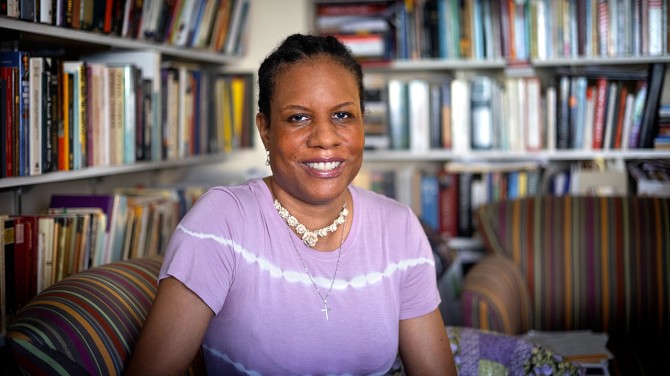Qantas intends to appeal the Federal Court’s judgement that it contravened the Fair Work Act in outsourcing the remainder of its ground handling function.
While the Court accepted that Qantas made the decision to outsource in response to the unprecedented impact of the COVID crisis, it found the TWU’s claim that preventing future industrial action was also a factor had not been disproven – which is the threshold for such cases.
Qantas fundamentally disagrees with this judgment, particularly in light of the following:
- Prior to the pandemic, Qantas was actively recruiting into its ground handling function and investing in new equipment – a sign that had no intention of outsourcing.
- Qantas had three clear reasons right from the outset as to why the outsourcing was necessary in the wake of the massive impact of the COVID crisis:
- Using specialised companies could save Qantas up to $100 million a year – savings it desperately needed to unlock as part of its recovery from COVID.
- It would also remove the need for Qantas to spend $80 million over five years on necessary ground handling equipment like tugs and baggage loaders.
- Outsourcing would allow resources to be better matched with fluctuating levels of demand, especially when the same workforce is providing services to scores of airlines at the same airport. The need for this variability has been shown again by the latest set of lockdowns.
Today’s judgment does not mean Qantas is required to reinstate workers or pay compensation or penalties. These matters have not yet been considered by the Court and Qantas will oppose any such orders. Qantas will also seek to have its appeal heard as soon as possible and before any remedy hearing.
Qantas Group Executive John Gissing, said: “The TWU has put forward its persecution complex that our decision to save $100 million a year in the middle of a global downturn was really about stopping them from walking off the job at some time in the future.
“The fact is, Qantas deals with the operational risk of industrial action on a regular basis given the 50-plus agreements across the Group. That risk pales in comparison with a pandemic that has grounded our fleet and our people for months, and has so far cost us $16 billion in revenue.
“The focus of the TWU’s case was on a few documents that made reference to industrial action while ignoring the hundreds that don’t. Any company acting prudently has to consider all operational risks when making a significant decision, but a reference to the risk of industrial action risk does not automatically mean that it’s a reason for the decision.
“Qantas was motivated only by lawful commercial reasons, and this will be the subject of our appeal.
“As part of its campaign, the TWU has been trying to discredit the safety of outsourced ground handling, despite the fact the long term incident rate was double when this work was done in-house. That kind of behaviour is hypocritical and it undermines the strong safety culture that exists throughout Australian aviation.
“The impact the latest lockdowns in Melbourne and Sydney have had on domestic travel shows why it was so important that we unlocked the structural savings from outsourcing the remainder of our ground handling.”
It is important to note that the TWU chose not to apply for an injunction to stop workers being retrenched and receiving their redundancy payouts, which would need to be repaid in full under any scenario where they returned to work.
CONTEXT OF THE OUTSOURCING DECISION BY QANTAS
In August 2020, Qantas announced its plans to outsource ground handling – which involves services like baggage handling and aircraft cleaning – at 10 ports as part of its response to the COVID-19 crisis. This work has already been outsourced for several years by Qantas at 55 ports across the country.
A competitive tender process, which included inhouse bids put forward by employees and the TWU, confirmed that outsourcing these services would save in excess of $100 million a year because of the efficiencies delivered by specialised companies that provide similar services to scores of airlines.
Outsourcing also avoided Qantas spending $80 million over the next five years to replace aging equipment such as tugs and bag loaders, and allow it to better match resourcing with fluctuating levels of demand.
The decision to outsource was made in November 2020. It resulted in around 1,700 Qantas employees receiving redundancy packages as the handover to external companies was progressively completed by March 2021. Many of these employees were already on COVID-related stand downs.
QANTAS RESPONSE TO INCORRECT TWU CLAIMS
UNION CLAIM – Qantas has pocketed billions of government support while at the same time sacking thousands of employees.
FACT – This is not true. The union like to dishonestly make out as though Qantas received large levels of government support to boost our bottom line. But they know full well that the majority of government support we’ve received was JobKeeper and other payments which went to our people.
The rest was fee-for-service including repatriation flights to bring Australians home and vital freight services to keep goods coming in and out of the country.
We’ve operated more than 1800 freight-only flights on behalf of the government, supporting more than 120,000 jobs around Australia. We’ve also operated more than 160 return repatriation flights, helping to bring tens of thousands of vulnerable Australians home.
UNION CLAIM – Because, Qantas has had a number aircraft damaged by outsourced ground handlers, they are unsafe.
FACT – This is not true. The TWU has been trying to discredit the safety of outsourced ground handling, despite the fact the long term incident rate was double when this work was done in-house.
That kind of behaviour is hypocritical and undermines the strong safety culture that exists throughout Australian aviation.
The TWU didn’t have the same level of concern about ground handling aircraft damage incidents before this work was outsourced. Only since the outsourcing are they commenting publicly on these incidents and the travelling public deserves to be cynical about that.
UNION CLAIM – CEO Alan Joyce was paid $11 million in FY20 during the middle of the pandemic.
FACT – This is not true. Alan Joyce’s salary in FY20 was $1.7 million. This was a drop of 83 per cent from the previous year due to COVID and included taking zero pay for 3 months of that year.
These figures are audited by KPMG and lodged with the ASX. The report can be found here (page 35).
An example media story from the time can be found here.
The report that the TWU is referring to includes bonuses that were already accounted for in prior years (pre-COVID) remuneration reports but that vested in August 2019. They have added this to what he actually got paid in FY20. So including these figures is double counting what has already been reported in prior years’ disclosures.
UNION CLAIM – Qantas has failed to guarantee workers will get paid when they go to get vaccinated.
FACT – We’re giving our employees eight hours paid leave so they can get vaccinated.








